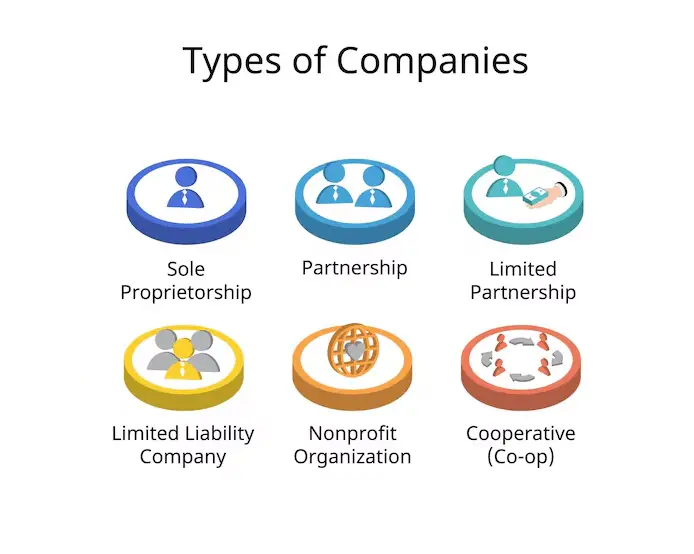Difference between Sole Proprietorship and Private Limited Company
When starting a business in India, choosing the right legal structure is crucial. Two popular options are sole proprietorship and private limited company. Learn the key differences between Sole Proprietorship and Private Limited.
Request for Call Back
- All India Service
- Easy OnlineProcess
- 24*7 Hours Customer Support
Sole Proprietorship vs. Private Limited Company: Key Differences
When starting a business, one of the most critical decisions an entrepreneur faces is choosing the right business structure. This decision impacts everything from taxation and liability to funding opportunities and operational complexity. Among the most common business structures are the Sole Proprietorship and the Private Limited Company. Understanding the difference between Sole Proprietorship and Private Limited Company is essential for making an informed choice that aligns with your business goals.

1. Separate Legal Entity
- Sole Proprietorship: The business is not a separate legal entity from the owner. The owner is personally liable for all business activities and debts.
- Private Limited Company: The company is a separate legal entity from its shareholders. It can own property, enter into contracts, and sue or be sued in its own name
2. Liability
- Sole Proprietorship: The owner has unlimited liability. Personal assets can be seized to pay business debts.
- Private Limited Company: Shareholders’ liability is limited to the amount they have invested in the company. Their personal assets are protected
3. Ownership Transfer
- Sole Proprietorship: Ownership is not transferable as the business is tied to the individual proprietor.
- Private Limited Company: Shares can be transferred, allowing for changes in ownership without affecting the continuity of the business.
4. Decision-Making
- Sole Proprietorship: The owner has complete control over decision-making and operations.
- Private Limited Company: Decision-making is shared among shareholders, and the company is managed by directors appointed by the shareholders.
5. Taxation
- Sole Proprietorship: The owner is taxed on business profits as personal income.
- Private Limited Company: The company is taxed at a flat corporate rate of 25% on chargeable income. Dividends received by shareholders are not taxed.
6. Ease of Setup
- Sole Proprietorship: Minimal legal formalities are required for formation and operation.
- Private Limited Company: The registration process involves more legal formalities, including the issuance of shares
7. Access to Financing
- Sole Proprietorship: Limited to personal savings and loans, which are restricted based on the owner’s income.
- Private Limited Company: Can raise capital through the sale of shares and obtain loans more easily
8. Regulatory Requirements
- Sole Proprietorship: Generally has fewer compliance requirements, making it easier and less costly to maintain.
- Private Limited Company: Requires adherence to more stringent regulations, including annual filings and audits, which can increase administrative costs.
Key Difference between Sole Proprietorship and Private Limited Company
| Feature | Sole Proprietorship | Private Limited Company |
|---|---|---|
| Legal Status | Not a separate legal entity | Separate legal entity |
| Liability | Unlimited liability for the owner | Limited liability for shareholders |
| Ownership | Owned by one individual | Minimum of 2 and maximum of 200 owners |
| Taxation | Taxed as personal income | Corporate tax rates apply |
| Setup Complexity | Simple and low-cost | More complex and higher costs |
| Funding Options | Limited to personal funds and loans | Can raise funds through shares |
| Credibility | Lower perceived credibility | Higher perceived credibility |
| Continuity | Depends on the owner | Perpetual existence independent of owners |
Choosing between a sole proprietorship and a private limited company in India ultimately depends on the entrepreneur’s goals, the nature of the business, and the level of risk they are willing to take. A sole proprietorship may be suitable for those seeking simplicity and control, while a private limited company is often better for those looking for liability protection, easier access to funding, and greater credibility in the market. Understanding these differences is crucial for making an informed decision that aligns with long-term business objectives.

Are you Looking for Business RegistrationConsult our Professionals Today!
Frequently Asked Questions (FAQ)
1. What is a Sole Proprietorship?
A Sole Proprietorship is an unincorporated business owned and managed by one individual. It’s the simplest form of business structure.
2. What is a Private Limited Company?
A Private Limited Company (Pvt Ltd) is a separate legal entity registered under the Companies Act. It is owned by shareholders and managed by directors.
3. What is the Legal Status of Each?
- Sole Proprietorship: Not a separate legal entity; owner and business are the same.
- Private Limited Company: Separate legal entity; can own property, sue, and be sued in its own name.
4. How Many Owners Are Required?
- Sole Proprietorship: Only one owner.
- Private Limited Company: Minimum 2 shareholders and 2 directors (can be the same people); maximum 200 shareholders.
5. What About Liability?
- Sole Proprietorship: Unlimited liability – personal assets of the owner can be used to pay business debts.
- Private Limited Company: Limited liability – liability is limited to the amount invested in the company.
6. Is Registration Mandatory?
- Sole Proprietorship: No formal registration required, but licenses like GST, MSME, or Shop Act may be needed.
- Private Limited Company: Must be registered with the Ministry of Corporate Affairs (MCA).
7. How is Taxation Handled?
- Sole Proprietorship: Income is taxed as personal income of the owner.
- Private Limited Company: Taxed separately at corporate tax rates.
8. Compliance Requirements?
- Sole Proprietorship: Fewer compliance requirements.
- Private Limited Company: Must file annual returns, hold board meetings, maintain statutory registers, etc.
9. Can I Raise Funding Easily?
- Sole Proprietorship: Difficult to raise funds or attract investors.
- Private Limited Company: Easier to raise funds through equity investment or venture capital.
10. Which One is Suitable for Me?
Choose Sole Proprietorship if:
You want to start small and have full control.
You want to avoid complex compliance.
Choose Private Limited Company if:
You plan to scale the business.
You want to limit personal liability.
You seek external funding or credibility.










